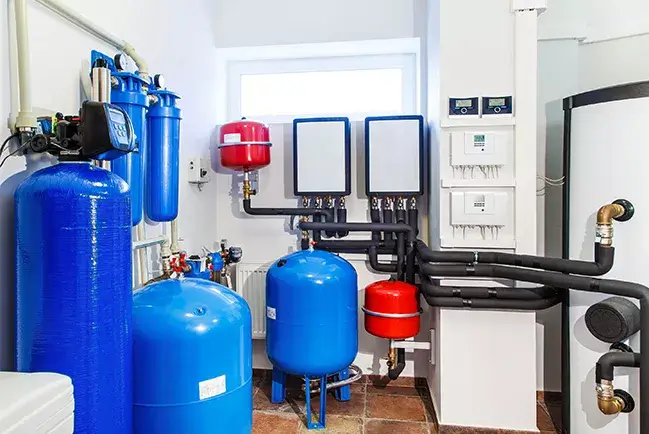If you have a well on your property, there are some things to consider before getting a water filtration system for your home. While many areas in the United States have very clean municipal water supplies, this is not always so. Municipal water supply systems typically supply drinking water using several sources including rivers, underground reservoirs, and lakes. Sometimes these water sources are not as clean as they could be and may contain pollutants such as lead, arsenic, or other harmful chemicals.
If you are using a well to supply your home with drinking water, it is important to test the water regularly for contaminants. If any harmful contaminants are found, you will need to install a water filtration system to remove them from the water before drinking it. There are a variety of different water filtration systems available as shown in this list, so it is important to choose the right one for your needs.
1. Knowing Your Well Water Chemistry & Surroundings.
The first step in choosing the correct water filtration system is to be sure you know what contaminants are present in your well water. By far the best way to determine this is to have your water tested by a state-certified lab or an independent testing facility. You can also contact your local health department, which should be able to help point you in the right direction.
If you don’t want to spend the money on a professional test, there are do-it-yourself testing kits available for under $10 that use a sample of your water to determine its pH level and chlorine content. While these types of tests can give you a general idea of what is in your water, they are not nearly as accurate.
2. Size the Pump and Filtration System Appropriately.
Well pumps typically come in electric, gas and solar-powered models.
As a rule of thumb, if you live more than 50 feet from your water source (such as a river or lake) then you should consider an electric pump because they will require less maintenance and do not need to be primed like the gas-powered models.
Solar power is another option for remote water locations where you cannot run electricity. The advantage of solar-powered pumps is that the running costs are practically nonexistent after you pay for the initial installation.
3. Make Sure the Filtration System Can Handle Your Flow Rate Requirements.
In order to determine the gallons per minute that your home will require, you can use a standard residential water flow rate. A normal faucet will produce between 2 and 3 gallons of water a minute. If you have a washing machine or dishwasher, it is recommended that you add another 1 gallon per minute for each appliance and for your shrubs in the front yard.
4. Choose the Right Water Filtration Media for Your Needs.
There is a variety of water filtration media available, each with its own advantages and disadvantages.
The most common type of media is activated carbon which is effective at removing chlorine, bad odors and tastes, and some organic compounds from the water. It is important to note however that activated carbon does not remove metals or other inorganic compounds from the water.
If you are concerned about metals or other inorganic compounds being present in your water, you should consider a water filtration system that uses distillation or reverse osmosis. These systems are more expensive than activated carbon filters, but they can remove virtually all contaminants from the water.
Popular Types of Water Filters for Wells
- Activated Carbon Filter: An activated carbon filter is the most common type of water filter and is effective at removing chlorine, bad odors and tastes, and some organic compounds from the water.
- Distillation System: A distillation system can remove virtually all contaminants from the water and can remove metals and other inorganic compounds.
- Reverse Osmosis System: A reverse osmosis system can remove virtually all contaminants from the water and is often used for commercial applications.
- UV Filtration System: A UV filtration system is effective at killing bacteria in your well water but does not remove metals or other inorganic compounds.
Ultraviolet light has the ability to kill bacteria and viruses in water, making it a popular choice for well water filtration systems. UV filters are often paired with another type of filter, such as an activated carbon filter, to remove larger particles and improve the taste and smell of the water just like solarium improves your mood.
One downside of using a UV filter is that it can actually cause carcinogens, such as certain arsenic compounds, to become more concentrated in the water.
Make Sure You Can Easily Service The Water Filtration System.
A water filtration system is of little value if you are not able to easily service it when necessary.
One important consideration of choosing a water filtration system is the ease of which you can access the filter cartridges.
If the cartridges are difficult to remove or replace, then it may be more hassle than it is worth in the long run.

